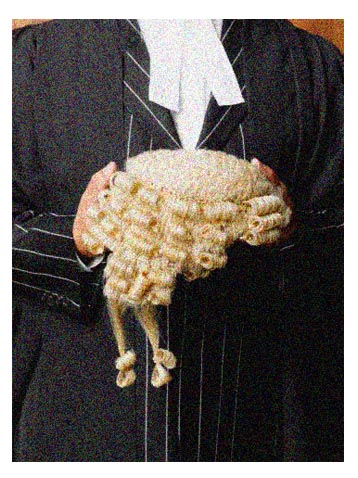Modernity
U.K. Ends More Than 600 Years of Tradition as Law Lords Bow Out
 More than 600 years of British history and tradition will end today when Parliament’s upper chamber, the unelected House of Lords, ceases to also be the nation’s highest court.
More than 600 years of British history and tradition will end today when Parliament’s upper chamber, the unelected House of Lords, ceases to also be the nation’s highest court.
The 12 "Law Lords" will convene in their debating chamber and deliver the institution’s final seven judgments. The Lords of Appeal in Ordinary, as they’re formally known, are moving to the Supreme Court of the U.K. on Oct. 1.
The House of Lords has been operating as a court since 1399, according to its Web site. Prior to that the full Parliament could weigh cases. While the House of Lords has kept separate judicial and legislative functions since 1876, the two weren’t physically divided.
"It’s all about the separation of powers," said Murray Rosen, head of London law firm Herbert Smith’s advocacy unit, in a telephone interview. After hundreds of years it looks "unusual" for lawmakers to be involved in judicial affairs, and the Supreme Court is a "nice symbol” of modernity.
The Labour government, as part of its promise to reform the upper house of parliament, in 2005 introduced legislation clearing the way for a new Supreme Court to hear appeals from England & Wales, Northern Ireland and Scotland.
The new court will be located in a refurbished building overlooking Parliament Square. It will be made up of 11 of the 12 judges that worked in the House of Lords. Anthony Clarke will be the 12th justice, and the first to be appointed directly to the Supreme Court. Nicholas Phillips, now senior law lord, will be the first president of the U.K. Supreme Court.
Different Roles
While "constitutionally nothing will change," the symbolic importance of physically separating the legislature and the judiciary is significant, said Roger Smith, head of Justice, a U.K. human rights and law reform organization.
It’s "important in a very visual age for the separate identity of court and parliament to be underlined," Smith said. “We are all going to look back and wonder why we didn’t do it much, much earlier.”
Some lawyers regard the change as little more than a re- branding and an office move. While the Law Lords share the same space as lawmakers and the debating chamber is used for judgments, their roles have long been distinct. The chamber’s ordinary lawmakers don’t have a say in rulings and judges don’t take any part in lawmaking.
Since 1876, according to a publication on Parliament’s Web site, only professional judges have ruled on cases, and they have been appointed to the chamber solely for that purpose. They do most of their work in cramped committee rooms far removed from parliamentary debates.
Monty Python
"Nobody seriously doubts the independence of the Law Lords," Michael Todd, an advocate at Erskine Chambers in London, said in a telephone interview.
Unlike the judges parodied by Monty Python, the Law Lords don’t wear wigs or bang a gavel. About five of them typically hear a case sitting around a conference table in business suits. It’s the lawyers presenting their arguments who wear "the full costume" of 18th century-style horsehair wig and gown, Todd said.
Today’s lists of judgments includes the case of a musician seeking a share of the royalties to the 1967 hit song "A Whiter Shade of Pale," and a woman with Multiple Sclerosis who asked the court to force prosecutors to tell her what may happen to her husband if he takes her to Switzerland to commit suicide. Each of the cases have taken several years to get from the lower British courts to the top of the system.
The usual judgment time was shifted to this afternoon from yesterday morning. The hearing will also be televised, ensuring maximum exposure.
Ronnie Fox, an employment lawyer at Fox Lawyers in London said the move is an example of politicians simply changing a name to make it sound better.
"Calling the Law Lords the Supreme Court is like using the phrase ‘quantitative easing,’ instead of `printing money,’ he said in a telephone interview. "But it is good that they now will have a properly equipped new court."
(Published by Bloomberg - July 30, 2009)
___________________
Click here and read today's top stories, the world's news about law.